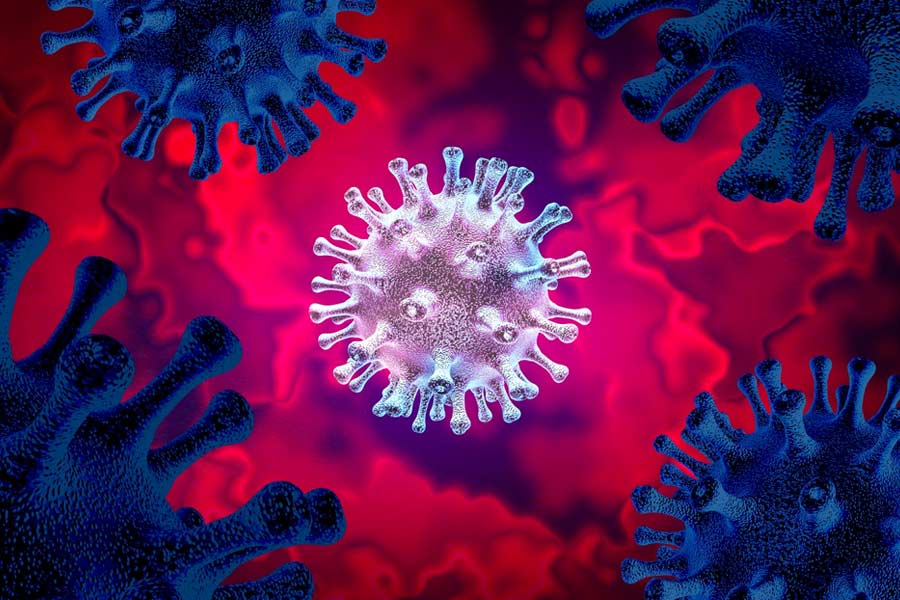Multiple symptoms of Long Covid (LC) can persist even four years after the initial infection, researchers have said in a study, highlighting the long-term burden on patients and the need for broader public understanding of the condition’s
consequences.
The study led by researchers at the National Institute of Virology (NIV), Pune, has found that patients with LC experience fatigue, cough, chest pain, palpitations, disturbed sleep, and abdominal and joint pains, among other symptoms, some lasting up to four years.
Shortness of breath after routine or moderate activity, for instance, persisted three years after Covid infection, while some patients experienced abdominal pain, indigestion, or constipation even at the four-year mark, the researchers said, describing their findings in the Journal of Infection and Public Health.
“We know LC symptoms gradually decline over time — but we were completely surprised that so many patients experience persistent and debilitating symptoms even four years after the infection,” Ameet Dravid, an infectious disease specialist and the study’s co-author, told The Telegraph.
Fatigue was the most common symptom, reported by 80 per cent of 104 patients, followed by cough (43 per cent), palpitations (28 per cent), anxiety (26 per cent) and sore throat (23 per cent). About 13 per cent experienced abdominal pain and 20 per cent reported joint pains. More than a third (36.5 per cent) had symptoms spanning multiple organ systems, confirming that LC is a multi-faceted syndrome beyond the respiratory system.
Anecdotal accounts suggest that persistent symptoms may reduce work capacity by 30 to 80 per cent. “Such patterns of symptoms tell us something has permanently changed — and this has economic consequences for patients and their families,” said Dravid at the Noble Hospital and Research Centre, Pune, one of the study’s participating hospitals.
Multiple studies outside India have suggested that between 10 per cent and 30 per cent of people who had Covid infections — regardless of severity — develop LC.
India’s health ministry has documented more than 45 million confirmed Covid cases since 2020, although experts say the true number is much higher because many infections were asymptomatic. Even with a conservative 10 per cent estimate, that would mean more than 4.5 million people in India could be living with LC.
“Many may not even know that they have LC symptoms,” Dravid said.
Dravid and colleagues at the NIV and other institutions are currently investigating the biological mechanisms behind LC, which may involve lingering immune and inflammatory changes, blood vessel and oxygen delivery problems, and possible viral persistence affecting multiple organs.
Complementing these findings, an independent US study published in the journal Nature Communications this week found that some patients who appeared fully recovered at three months developed symptoms over the next year, deepening concerns about the lingering and unpredictable burden of LC.
The US study tracked 3,659 patients for up to 15 months and identified eight distinct symptom trajectories. About 14 per cent showed delayed symptom onset, 5 per cent experienced persistently high symptoms, and 12 per cent had an intermittently high burden that did not improve.
The delayed symptoms were not related to reinfection, suggesting that a delayed biological process or other mechanisms may be involved, Bruce Levy, a pulmonary medicine specialist at Brigham and Women’s Hospital, and colleagues reported.
“Our findings will help determine what resources are needed for clinical and public health support of individuals with long Covid and will inform efforts to understand its biological basis,” Levy said in a press release from the hospital.











